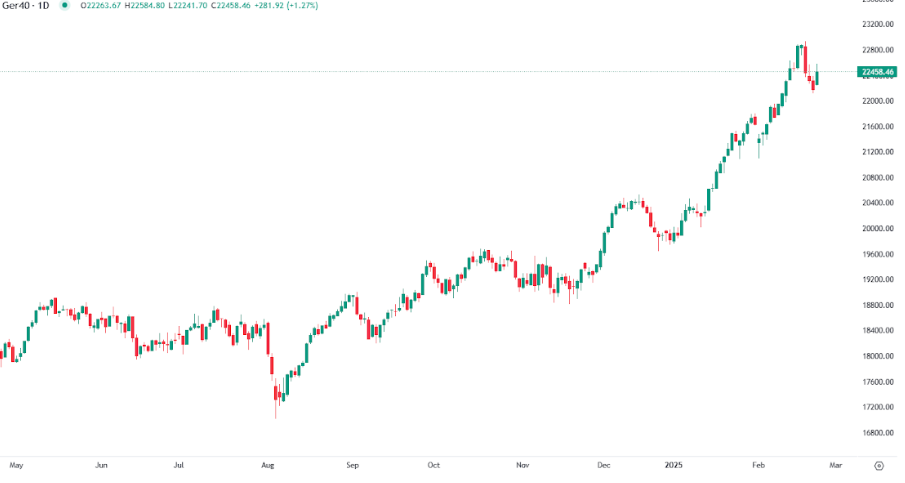Financial markets welcomed the results of the German election with cautious optimism. The outcome aligned with projections, with no surprises—an initial positive takeaway for predictability-loving investors. Another encouraging factor is the Bundestag’s final composition, which allows the two centrist parties, the CDU and SPD, to form a majority coalition, avoiding a more complex and prolonged three-party negotiation. However, there are also reasons for concern. Raising Germany’s debt—a crucial step to finance increases in defence and infrastructure spending—requires a two-thirds majority. This means securing support from either the far left or the far right, both of which have firmly opposed such measures, setting the stage for challenging negotiations. Against this backdrop, traders greeted the election results with some relief and even a touch of optimism. The German DAX index opened higher, as did the Euro Stoxx index of European companies. Meanwhile, the euro strengthened against the dollar, and German Bund yields fell as demand rose, particularly at the longer end of the curve.
Ricardo Evangelista – Senior Analyst, ActivTrades

Source: ActivTrader
The information provided does not constitute investment research. The material has not been prepared in accordance with the legal requirements designed to promote the independence of investment research and as such is to be considered to be a marketing communication.
All information has been prepared by ActivTrades (“AT”). The information does not contain a record of AT’s prices, or an offer of or solicitation for a transaction in any financial instrument. No representation or warranty is given as to the accuracy or completeness of this information.
Any material provided does not have regard to the specific investment objective and financial situation of any person who may receive it. Past performance is not a reliable indicator of future performance. AT provides an execution-only service. Consequently, any person acting on the information provided does so at their own risk.